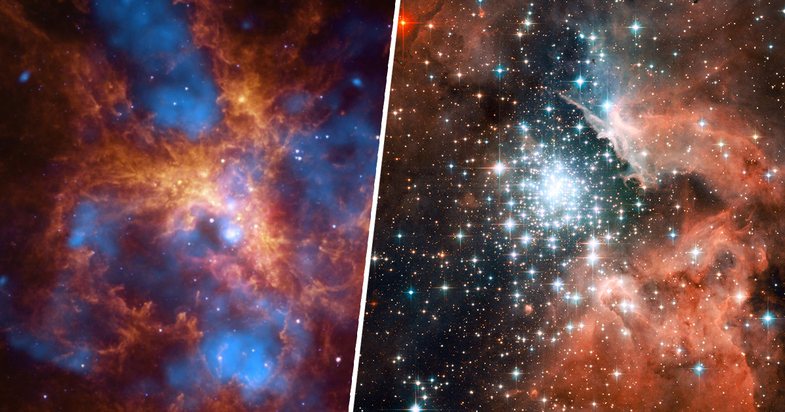
A cosmic gas cloud recently discovered by scientists is what they call a "heartbeat."
Researchers claim that while the cloud itself has nothing extraordinary, the pulsating beat that is in sync with a black hole (not so much) nearby, has begun to intrigue and surprise professionals.
This rhythmic beat indicates that they are somewhat related to each other, but it remains unclear how the "heartbeat" is related to the black hole, estimated to be about 110 light-years away.
Scientists discovered the beating quite by accident, while researching between data and other research.
While observing a giant star, about 30 times larger than the sun, they also noticed a black hole. She and a star would revolve around each other every 13 days, while the "black hole" received material from the star.
Jian Li, one of the researchers who was close to the event, after some technical explanations in the connection they found, says:
"This finding is as unexpected as it is amazing. However, it is still unclear how the black hole can amplify the "heartbeat" of cosmic gas clouds.
To put it simply, a gas cloud and a black hole 100,000 light-years away are mysteriously and rhythmically connected to each other, something that is plaguing all of the world's leading scientists.
"After all, maybe we are not alone ..."
Source: Unilad





